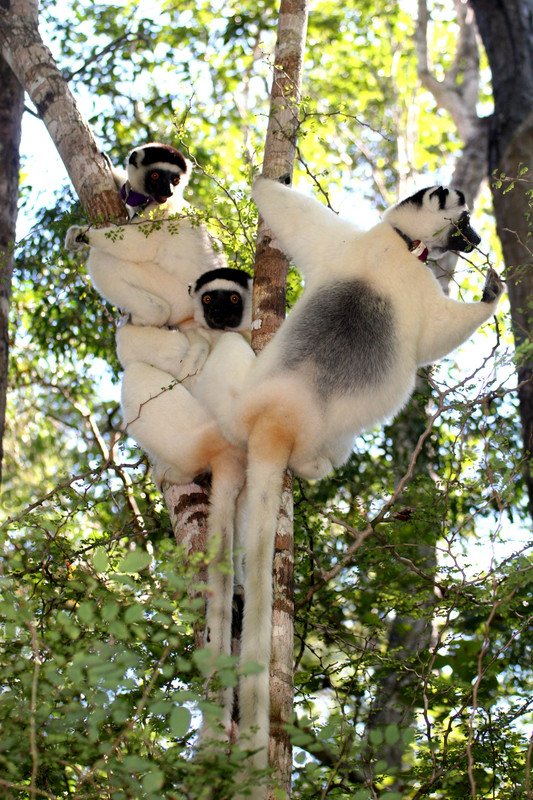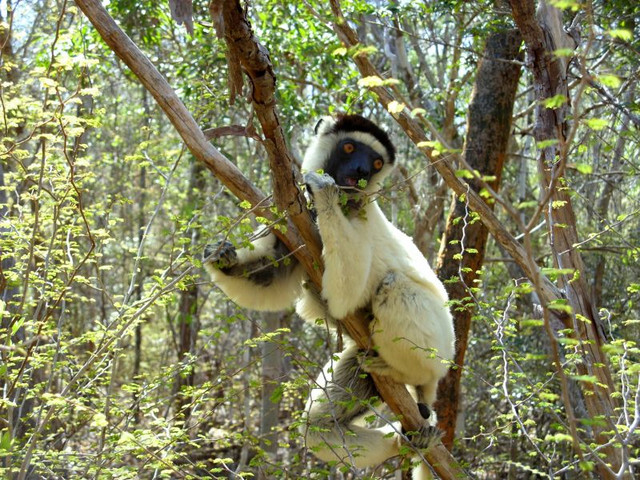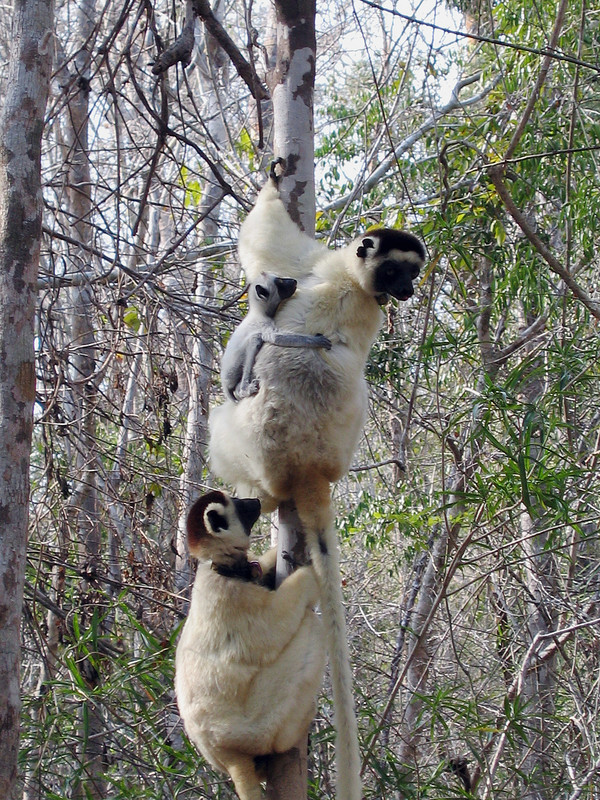Opportunists with a home advantage

Preferred food, territories or mating opportunities - reasons for conflicts between neighboring groups are manifold in social living animals. Confrontations with conspecifics of neighboring groups are often hostile and members of the same group defend their territory cooperatively. However, common defense presents also a collective action problem: Not all group members participate in each conflict, but still enjoy the benefits of a joint territory. In order to examine which factors influence participation and outcome of intergroup encounters, behavioral scientists of the German Primate Center and the Göttingen University observed Verreaux’s sifakas in Madagascar. They showed that these primates seem to decide whether to join a given encounter opportunistically, based on individual incentives and the actual circumstances (Behavioral Ecology & Sociobiology, 2016). In addition, the outcome of an intergroup encounter is not influenced by the numerical advantage of one group but the home advantage of the resident group (Scientific Reports, 2016).
The scientists studied eight neighboring groups of Verreaux’s sifakas regularly for over a year in Kirindy Forest in western Madagascar and observed the animals’ behavior during intergroup encounters. In the first part of the study, they examined which group members participated when and why in intergroup encounters.
In contrast to many other primate species, both adult sifaka females and males participate regularly in encounters. Moreover, the number of active individuals in the opponent group influences the number of own participants: The more individuals actively participate in one group, the more participate in the other group. However, not all group members do always participate in these encounters. Females refrain from agonistic conflicts with neighboring groups only when they have young, dependent infants. Males participate less often when they have few opportunities to reproduce in the group.
“Sifakas participate rather opportunistically in encounters with neighboring groups”, says Claudia Fichtel, scientist in the Behavioral Ecology and Sociobiology Unit at the German Primate Center and senior author of the study. “The lemurs fight according to individual interests and current circumstances, such as the number of actively fighting opponents.”
In another part of the study, the behavioral scientists examined which factors increase the probability of winning an intergroup encounter. The scientists found that the numerical advantage does not influence the outcome of encounters whereas the home advantage does. If the conflict takes place close to an area that was intensively used by one group, their probability of winning increases. Residents apparently have a greater motivation to defend the territory and, thus, win more frequently.
“The winners also benefit, because they can use the territory more often in the following month than the losers”, explains Flávia Koch, first author of the study who did her PhD in the Behavioral Ecology and Sociobiology Unit at the German Primate Center. “Thus, in gregarious animals the actual circumstances, such as the location of the intergroup encounter, can overcome the numerical advantage of the other group.”
Original publications
Koch, Signer, Kappeler, Fichtel (2016) Intergroup encounters in Verreaux’s sifakas (Propithecus verreauxi): who fights and why? Behavioral Ecololgy & Sociobiology, 70:797–808. DOI 10.1007/s00265-016-2105-3
Koch, Signer, Kappeler, Fichtel (2016) The role of the residence-effect on the outcome of intergroup encounters in Verreaux’s sifakas. Scientific Reports, 6: 28457. DOI 10.1038/srep28457



